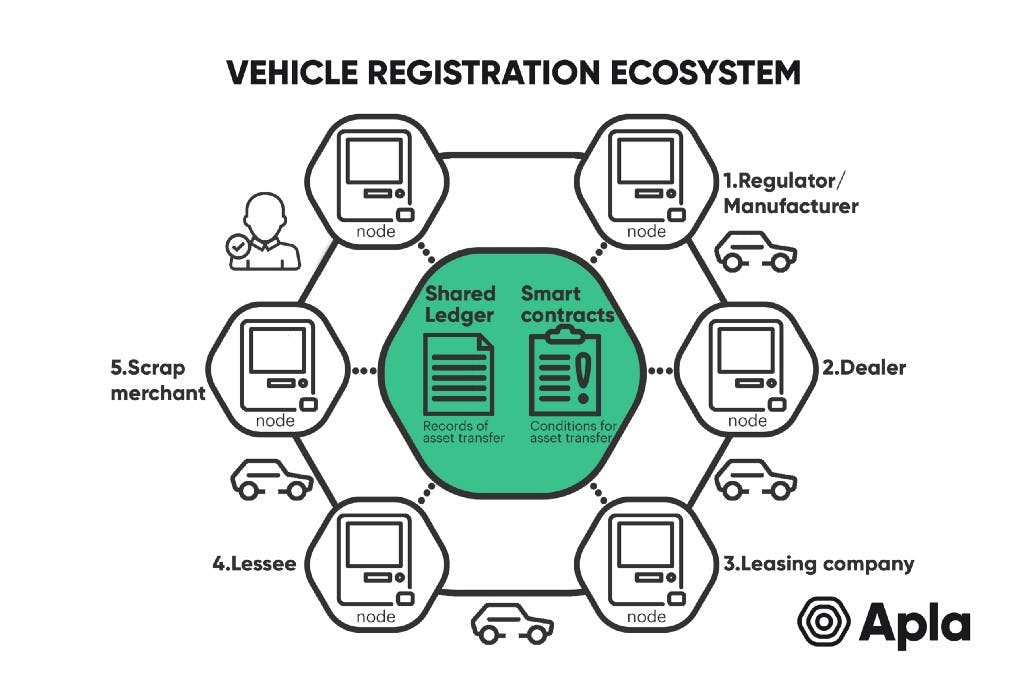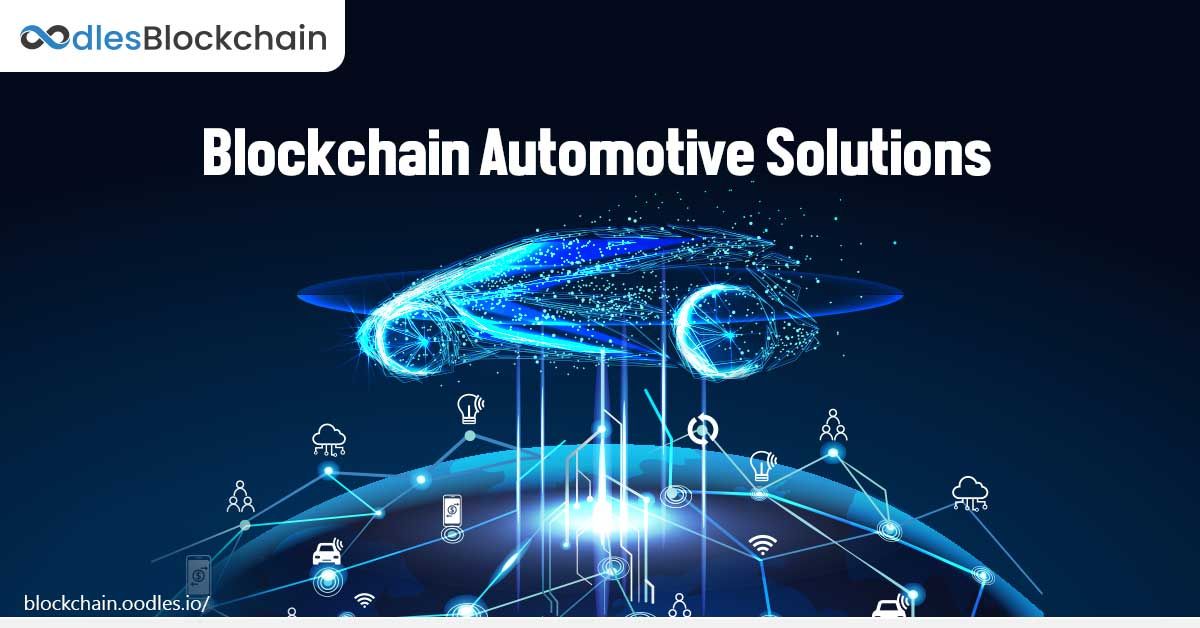The Potential Of Blockchain To Disrupt The Automotive Industry

The automotive industry is on the cusp of a major transformation, fueled by the rise of electric vehicles, autonomous driving, and connected car technologies. But another revolutionary force is poised to reshape the industry: blockchain. This distributed ledger technology, best known for its role in cryptocurrencies, holds immense potential to disrupt various aspects of the automotive ecosystem, from supply chain management to vehicle ownership and insurance.

Introduction
Blockchain is a revolutionary technology that has the potential to disrupt the automotive industry in various ways. It is a decentralized, transparent, and secure system that can be used to track and verify transactions across a network. This technology can be applied to various aspects of the automotive industry, from supply chain management to vehicle ownership and insurance. The potential of blockchain to enhance efficiency, transparency, and security is significant.
Enhanced Supply Chain Transparency and Traceability
Blockchain can provide an unprecedented level of transparency and traceability throughout the automotive supply chain. This is critical for several reasons:
- Origin Tracking: Every component used in a vehicle can be tracked from its source to the final assembly line, ensuring authenticity and preventing counterfeit parts.
- Material Sourcing: Sustainable sourcing practices can be monitored and verified, allowing manufacturers to meet growing consumer demand for ethical and environmentally friendly products.
- Production Optimization: Real-time data on component availability and production progress can be shared across the supply chain, streamlining production processes and reducing delays.
- Quality Control: Blockchain can record and track quality checks at each stage of production, creating a permanent audit trail that improves accountability and reduces risks of defects.
- Fraud Prevention: The decentralized and immutable nature of blockchain makes it virtually impossible to tamper with data, reducing the risk of fraud and counterfeiting.
Secure Vehicle Ownership and Identity
Blockchain can revolutionize how vehicle ownership and identity are managed. Traditional paper-based titles and registration documents are prone to fraud, forgery, and loss. Blockchain offers a secure and verifiable alternative:
- Digital Vehicle Title: A digital title stored on a blockchain can be transferred seamlessly and securely between owners, eliminating the need for physical documents.
- Identity Verification: The blockchain can be used to securely store and manage vehicle identity information, such as VIN numbers and registration data, making it tamper-proof.
- Stolen Vehicle Recovery: A blockchain-based system can help track the movement of vehicles and identify stolen vehicles, increasing the chances of recovery.
- Vehicle Financing: Blockchain can streamline and secure vehicle financing processes, reducing the need for intermediaries and improving efficiency.
- Digital Insurance Records: Insurance policies and claims data can be stored securely on a blockchain, simplifying insurance processes and reducing fraud.
Decentralized Automotive Data Platform
Blockchain can facilitate the creation of a decentralized automotive data platform, where vehicle data is securely shared and accessed by various stakeholders. This platform can revolutionize how vehicles are maintained, monitored, and used:
- Real-Time Vehicle Data: Vehicle data such as speed, location, fuel level, and maintenance records can be securely shared with authorized parties, providing valuable insights for various applications.
- Remote Diagnostics: Blockchain can enable remote diagnostics and troubleshooting, allowing for faster and more efficient vehicle maintenance.
- Predictive Maintenance: Real-time data collected on vehicle performance can be used to predict potential issues and schedule maintenance before breakdowns occur, reducing downtime and repair costs.
- Autonomous Vehicle Networks: A decentralized platform can facilitate the communication and coordination of autonomous vehicles, enabling efficient and safe operation.
- Shared Mobility Services: Blockchain can provide a secure and transparent framework for shared mobility services, allowing for the tracking of usage and payments.
Improved Customer Experience and Trust
Blockchain can improve customer experience and trust in the automotive industry by increasing transparency and providing new avenues for interaction.
- Direct Customer Interaction: Blockchain allows manufacturers to engage directly with customers, bypassing traditional dealerships and providing personalized experiences.
- Customer Rewards Programs: Loyalty programs and rewards can be built on a blockchain, providing secure and transparent tracking of customer activity and rewards.
- Data Privacy and Security: Customers can control their own data and choose who has access to it, promoting data privacy and security.
- Traceability of Parts: Customers can verify the authenticity and origin of parts used in their vehicles, building trust in the product and the manufacturer.
- Reduced Insurance Costs: Data collected on vehicle performance can be used to assess risk and provide personalized insurance premiums, leading to potential cost savings for customers.
Conclusion
The potential of blockchain to disrupt the automotive industry is undeniable. From enhancing supply chain efficiency and security to revolutionizing vehicle ownership, data management, and customer experience, this transformative technology is poised to reshape the industry landscape in significant ways. While the adoption of blockchain in the automotive industry is still in its early stages, several companies are already experimenting with this technology. As the technology matures and its benefits become more widely recognized, we can expect to see its widespread adoption across various aspects of the automotive ecosystem.
The integration of blockchain will undoubtedly lead to significant changes in the industry, including:
- New Business Models: Decentralized platforms and new forms of ownership will create opportunities for innovative business models.
- Increased Competition: New entrants and startups will be able to compete with established players by leveraging the benefits of blockchain technology.
- Enhanced Customer Experience: Greater transparency, personalized services, and secure data management will improve customer trust and satisfaction.
- Improved Sustainability: Blockchain can facilitate the development of more sustainable practices throughout the supply chain and in vehicle operation.
The automotive industry is at a turning point. Embracing blockchain technology is not just an option; it is a necessity for manufacturers, suppliers, and consumers alike. As the automotive industry navigates the complex landscape of technological advancements, blockchain promises to be a catalyst for positive change, driving efficiency, transparency, and innovation in the years to come.
